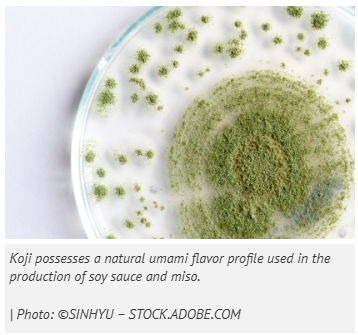
Prime Roots is seeking to stand out in the plant-based category with its clean label deli meat alternatives. The company, founded in 2017, markets a line of ham, turkey and salami alternatives in retail and foodservice settings.
“I started the company with a specific goal in mind to really drive environmental impact in a positive way and to really nourish people through great tasting foods,” said Kimberlie Le, co-founder and chief executive officer of Prime Roots, in an interview with Food Business News. “My mom is a chef, so I’m very passionate about bringing good tasting foods, first and foremost, to people, foods that are nutritious, that are actually good for you and are sustainable.”
Prime Roots’ products are derived from koji mycelium, a fungus used in the production of a variety of traditional east-Asian cuisines, due to its naturally savory flavor profile.
“We knew that the mycelium microprotein base was the path, but there are many types of mycelia,” Le explained. “What we found is the koji adds a great amount of natural umami. Koji is typically found in miso and soy sauce, and it provides that umami taste, so it helps our products have that meaty taste and texture without having to add in extra ingredients to do that.
“It definitely took us a lot of trial and error. I think we spent about five years just in pure R&D to get where we are, to drive the clean innovation and to make sure that the product holds up in all settings.”
Prime Roots targeted the deli meat segment after noticing a lack of plant-based options in the space, especially with sandwiches being the most consumed food in the United States, Le said.
“We see a huge gap in the category in terms of products that really fit the needs and the wants of a changing demographic of consumers,” Le said. “Our main target audience are flexitarians and omnivores, but our products are friendly for vegetarians, vegans, etc., and we wanted to really innovate to make a product that meets everyone’s needs and is no compromises.”

The company aims to capture the interest of younger shoppers (Gen Z, millennials) with its emphasis on sustainability, an ingredient deck that is smaller than many other plant-based products with recognizable ingredients, and a preservative- and nitrate-free formulation.
“We’ve had quite a number of years to really innovate on how to drive clean label innovation within plant based, and then also within the deli, which has its own set of not so clean ingredients,” Le said. “And I do think consumers are catching on to that, and they’re Googling the things that are on the label, and they’re really questioning what they’re putting into their bodies and their kids meals.
“We’re the only product in the deli that is completely preservative free, cholesterol free, nitrate free, all the not-so-great stuff … so if you look at our ingredient list, it’s short, it’s pronounceable, it’s made with all ingredients that you already know or are all non-ultra processed.”
Prime Roots’ products are available in 18 states across the United States, and the company is looking to expand nationwide through 2025 and 2026. Le said the company plans to scale its operations through a 50/50 approach to foodservice and retail channels.
“We work with conventional players, grocery chains with delis, we work with QSRs, we work with anyone that can serve deli meats,” Le said. “We integrate in one to one so there’s no additional equipment that you have to get to use our products. There’s no additional training … we’ve made it truly a one-to-one swap for both the operator as well as the consumer.”
Le said Prime Roots also may be eyeing alternative protein applications outside of deli meats due to the flexibility of the company’s koji mycelium base.
“Our technological platform that we’re built off, all the innovation that we’ve developed over the last five years can make any form factor within alt proteins,” she said. “Today, we’re starting in deli, because deli is a huge opportunity that there’s no single company in plant based that’s tackling (the segment), especially in the service deli.
“But beyond the deli, you know, we’re really able to tackle the multitude of protein types … we have, at scale, the ability to really differentiate our proteins quite quickly.”
Article Credit: foodbusinessnews